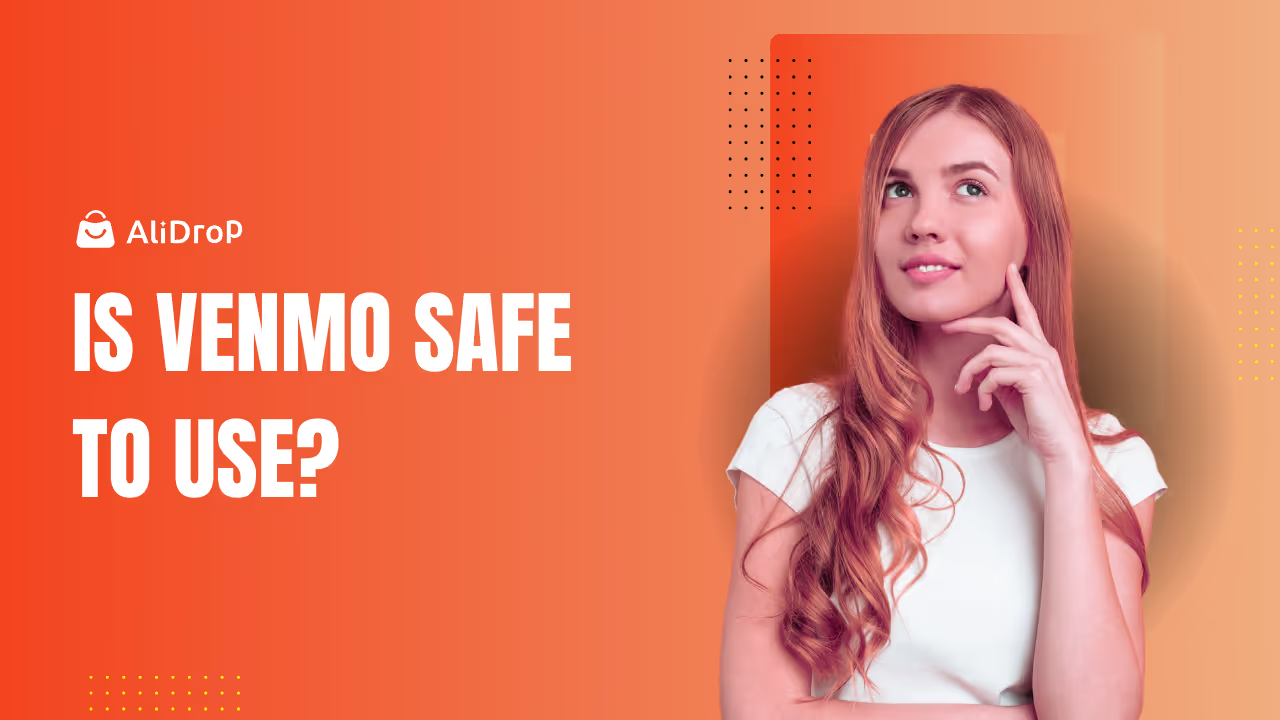Feeling overwhelmed managing your shipping, warehousing, and inventory? You’re not alone. For growing businesses, logistics can feel like a giant puzzle you never quite finish. That’s where third party logistics (3PL) comes in—and it might just be your business's secret weapon.
Whether you're a solo founder or scaling fast, 3PL helps you offload the heavy lifting (literally) to experts who specialize in handling your backend operations like inventory management, shipping, packing, and more. With 3PL, you don’t just save time—you streamline success.

In this blog, we’ll walk you through everything you need to know about third party logistics. Let’s break it all down so you can ship smarter, stress less, and focus on growing your business.
What is Third Party Logistics?
Third party logistics, or 3PL, refers to outsourcing logistics and supply chain operations to an external service provider. These third-party companies handle various logistics functions such as storage, inventory management, packaging, order fulfillment, freight forwarding, and shipping.
Basically, a 3PL provider becomes your go-to logistics partner. Instead of running your own warehouse or hiring an in-house team for distribution, you collaborate with professionals who have systems, fleets, and infrastructure ready to go.
This setup is especially useful for e-commerce stores, manufacturers, and retailers who want to scale efficiently. You gain access to advanced logistics tech, nationwide or even global networks, and skilled personnel—all without the overhead of owning it.
The term “third party” simply indicates the relationship: you’re the first party, your customer is the second, and the logistics provider is the third. Simple, right?
Whether you’re shipping across the state or across the world, 3PL helps you deliver the goods on time, every time. It frees you from logistical chaos and lets you focus on what matters most—building your brand and making sales.
Key Services Offered by 3PL Providers
If you think 3PLs just move packages from point A to B, think again. 3PL companies offer a full suite of services that cover nearly every aspect of logistics—tailored to fit your business needs.
Warehousing
3PL providers offer short- and long-term storage solutions in strategically located warehouses. This ensures quicker delivery and reduced shipping costs based on your customer’s location.
Inventory Management
Through real-time tracking and integrated systems, 3PLs keep tabs on your stock levels. You’ll know when to reorder, what's running low, and what’s sitting too long.
Order Fulfillment
When customers click “buy,” your 3PL picks, packs, and ships the order—often the same day. This helps boost customer satisfaction and reduces delivery windows.
Freight Forwarding
They manage complex international shipping processes including customs documentation, carrier selection, and route optimization.
Returns Processing
Also called reverse logistics, 3PLs can handle customer returns by inspecting, restocking, or disposing of products based on your preferences.
Kitting and Assembly
Need to bundle products or customize orders? Some 3PLs offer value-added services like kitting, repackaging, and labeling.
The best part? These services are scalable. Whether you're sending out 10 or 10,000 orders a month, a 3PL grows with your business. You get pro-level logistics—without needing your own fleet or warehouse staff.
Benefits of Using Third Party Logistics
Outsourcing logistics to a 3PL isn’t just a matter of convenience—it’s a strategic move. Businesses that partner with third party logistics providers often gain serious competitive advantages.
Cost Savings
Operating your own warehouse, fleet, and logistics staff is expensive. 3PLs already have that infrastructure in place, allowing you to save on labor, storage, and shipping costs.
Scalability and Flexibility
Peak season rush? Sudden sales growth? A 3PL lets you scale up or down without overcommitting to physical assets. Whether you’re fulfilling 100 orders or 10,000, they’ve got the bandwidth.
Focus on Core Business
Handing off logistics means you can focus on product development, customer service, and marketing—the stuff that drives growth—while experts handle your supply chain.
Faster Shipping Times
Thanks to their warehouse networks and relationships with major carriers, 3PLs can speed up delivery, improving your customer satisfaction and loyalty.
Expertise and Technology
3PLs use powerful logistics software for real-time tracking, predictive analytics, and inventory forecasting. You get access to these tools without the upfront investment.
Risk Reduction
They know how to navigate customs, regulations, and shipping risks. Their experience helps reduce errors and manage delays more effectively.
Challenges with Third Party Logistics
Third party logistics offers a ton of upside—but it’s not without its hurdles. Before diving in, you need to understand the potential challenges to make smarter decisions.
Loss of Control
When you outsource logistics, you're handing over control of a key part of your business. That can be tough if you're used to managing every detail in-house.
Communication Barriers
Sometimes, delays and issues arise not from performance but from poor communication between your business and the 3PL provider.
Upfront Integration
It takes time (and sometimes money) to integrate your systems with a 3PL. If the process isn’t smooth, it can cause disruptions.
Hidden Costs
Not all pricing is transparent. Extra fees for returns, repacking, or special handling can sneak up on you.
Brand Experience Risks
Your 3PL represents you. Poor packaging, delays, or mistakes can reflect poorly on your brand.
Data Security
You’re sharing sensitive data. Make sure your provider uses strong cybersecurity protocols and is compliant with regulations.
3PL for Dropshipping
If you’re in the dropshipping game, you already know how crucial speed, accuracy, and convenience are. And that’s exactly where third party logistics shines. A reliable 3PL can elevate your dropshipping operation from chaotic to seamless.
Why Use 3PL for Dropshipping?
Traditional dropshipping often relies on manufacturers to ship directly to customers. But long shipping times and lack of branding control can hurt your customer experience.
Key Advantages
- Faster Delivery – Ship from domestic warehouses in 2–5 days.
- Brand Control – Use custom packaging and inserts.
- Returns Handling – Streamlined processing and restocking.
- Automation – Seamless integrations with Shopify, WooCommerce, etc.
Use Cases
Etsy sellers often partner with 3PLs to handle high-volume orders during holiday seasons or viral campaigns. It's how small brands go big—fast.
Industries That Rely on Third Party Logistics
Third party logistics isn’t a niche solution—it’s a vital part of global commerce. From startups to Fortune 500s, countless industries rely on 3PL providers.
- E-Commerce & Retail: Brands like Gymshark use 3PLs for quick order fulfillment and returns.
- Consumer Packaged Goods (CPG): From snacks to toiletries, CPG relies on widespread distribution and shelf-readiness.
- Pharmaceuticals & Healthcare: Need cold chain solutions and strict regulatory compliance? That’s where 3PLs come in.
- Automotive: Parts suppliers use 3PLs for JIT delivery and multi-location inventory management.
- Apparel & Fashion: Trend-based sales mean seasonal spikes. 3PLs help fashion brands stay flexible. There are many dropshipping platforms like Alidrop that can work with 3PLs to do vintage fashion dropshipping.
- Food & Beverage: Cold storage and food-grade warehousing are musts for perishables.
- Technology & Electronics: Secure packaging, kitting, and international delivery are essential here.
How 3PL Supports Inventory Management and Warehousing
Inventory management isn’t glamorous, but it’s essential. 3PLs offer tools and infrastructure that make it a whole lot easier.
- Real-Time Tracking: Integrated dashboards sync with your store so you always know your stock levels.
- Smart Storage: 3PLs use barcode systems and logic-based slotting to organize products efficiently.
- Forecasting: With analytics, 3PLs help you reorder the right products at the right time.
- Security: Warehouses often have 24/7 monitoring, insurance, and climate controls. With a 3PL, your backend runs smoothly, and you can scale without worrying about space or staff.
Distribution, Packing & Shipping with 3PL
When your product leaves the warehouse, the customer experience begins. Here’s how 3PLs make that flawless:
- Fast Distribution: Multiple fulfillment centers mean your products ship closer and quicker.
- Custom Packaging: Branded tape, inserts, and boxes? You got it covered with Print-on-demand and other services.
- Accuracy: Automation and barcoding reduce picking errors and delays.
- Carrier Options: 3PLs shop rates and pick the best option—so you don’t have to.
- Tracking: Customers receive real-time updates and shipment confirmations.
Freight Audit and Returns Management
Shipping costs and returns can crush profits if left unchecked. Here’s how 3PLs help:
- Freight Audit: They inspect shipping invoices for errors, overcharges, or duplicate fees—and recover your money.
- Carrier Rate Shopping: They choose the best value for every shipment based on cost, speed, and reliability.
- Returns Handling: Returned items are inspected, restocked, or disposed of based on your instructions.
- Branded Portals: Customers can self-initiate returns through clean, professional interfaces.
Conclusion
Third party logistics isn’t just a service—it’s a strategy. Whether you're running a growing e-commerce store, scaling a brick-and-mortar brand, or building a dropshipping empire, 3PLs offer the tools, tech, and team to streamline your backend and supercharge growth.
From inventory management and shipping to returns and audits, a 3PL provider helps you work smarter, not harder. It’s about letting experts handle the heavy lifting so you can focus on what you do best: building your brand.
Ready to outsource the chaos? With the right third party logistics partner, the sky’s the limit.
Third Party Logistics FAQs
What does a third party logistics provider actually do?
A third party logistics (3PL) provider handles your backend supply chain tasks like storing inventory, packing products, fulfilling orders, and managing shipping. Many also offer services like returns processing, freight auditing, and inventory forecasting. Think of them as your outsourced logistics team—handling the physical movement of your goods so you can focus on growth.
How does 3PL benefit small businesses or startups?
3PLs help small businesses scale fast without major upfront costs. You don’t need to lease warehouses, hire fulfillment staff, or manage multiple carriers. Instead, you pay for what you use and tap into the 3PL’s infrastructure. It’s a flexible, low-risk way to offer fast shipping and professional service from day one.
Are there downsides to using third party logistics?
While 3PLs offer many perks, there are trade-offs. You lose some direct control over shipping and customer experience. Integration may take time, and pricing structures can be complex. However, with a trusted provider and clear communication, most issues can be minimized or avoided entirely.
Can I use a 3PL if I sell on Amazon, Shopify, or Etsy?
Yes. Most 3PLs offer integrations with platforms like Amazon (including FBA prep), Shopify, WooCommerce, Etsy, and more. Orders sync automatically, and shipping updates flow back to your store. This makes fulfillment seamless and scalable—perfect for growing online sellers.


















.avif)





